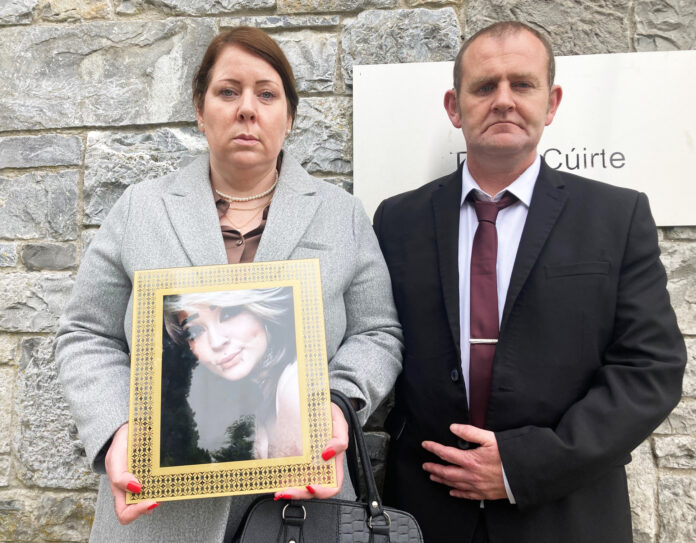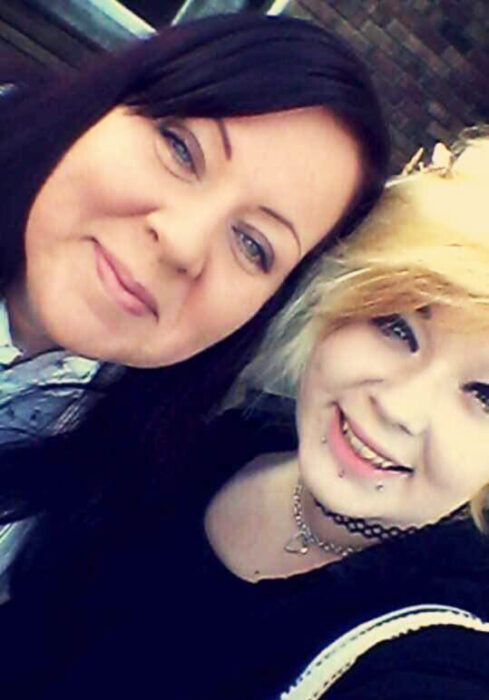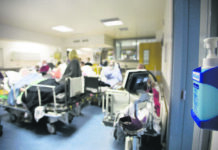
A LIMERICK woman whose daughter died at University Hospital Limerick (UHL) after spending 17 hours on a trolley has called for government intervention to tackle chronic overcrowding at the hospital.
Melanie Sheehan, whose 21-year-old daughter Eve Cleary died in 2019, said she will “never again” bring any of her remaining five children to the emergency department at UHL.
Record high levels of overcrowding in the hospital last Monday led to management declaring a major emergency in the emergency department where 170 patients waited for treatment.
Ms Sheehan urged people to attend a demonstration march organised for 11am in Limerick City on January 21 to highlight overcrowding at UHL.
“Every person in the Mid-West should be standing up to say this is wrong – we need better healthcare, we all deserve better,” she said.
Ms Sheehan revealed that her dying daughter’s trolley was located next to a sink which had been used as a toilet by another patient.
She said it appeared nothing has changed at the emergency department since her daughter’s death.
“When you are just hours away from death, which was the reality of Eve’s case, there was no blanket or pillow for her. I dread to think about elderly patients left there,” said Ms Sheehan.
“I understand there are a shortage of beds, but this is happening time and time again, year after year after year.”
Her clear message to the government is: “Listen to us here in Limerick and intervene to do something to stop anybody else dying.
“These are our children and our parents that go out there, but I will never give UHL one of my children ever again to look after, because I trusted them to look after Eve, and I believed them when they said she was okay – but she wasn’t.
“I would rather bring them to Galway if I have to. Why are the government not intervening?
“How people are left in those conditions is beyond me – what the hell is going on out there? Why aren’t politicians screaming for us here in Limerick, and why is it up to the victims of UHL to always shout about it. That is how I refer to our family – we are victims of UHL.”
Ms Sheehan said when she heard about the death of 16-year-old Aoife Johnston on December 19 after she reportedly spent up to 16 hours on a trolley in the Limerick emergency department, it felt like she got a kick in the stomach.
“It literally broke me – to think that another mother and siblings and her poor dad are walking now in the same path we have to walk. It’s horrific”.
Speaking generally, she said she believed the health authorities “have learned nothing from Eve’s death”.
Ms Sheehan helps run the Mid-West Hospital Campaign, which set up a social media platform to improve the hospital service
“Eve’s death will be with us for the rest of our lives, and this is why I am involved in the hospital campaign, so that I feel like I am doing something to make sure Eve is not forgotten.”
“We see her friends and we wonder about Eve. I’ll never see her get married or have children. It literally guts me.
“Eve was sent home from UHL critically unwell and my other children were left to look at that and deal with it.”
She acknowledges that a lack of beds and staff at UHL are big factors in the hospital overcrowding crisis, but she argues that the HSE and government have known about the issues for years.
“The conditions in there are unsafe. They knew the winter surge was coming but this isn’t just a winter problem. When Eve was there three years ago the trolleys were backed up in the emergency department, and you could not walk between them.
“There was a man on a trolley behind Eve, and he was bleeding out of his nose. Eve was getting me to help him get to the bathroom because she couldn’t get up, and there was no one to help. The patients were literally cramped in together.
“I spoke to the Health Information and Equality Authority in February last year about Eve and they were horrified that she wasn’t even offered a blanket, a pillow or a cup of tea while she was in there.”
Ms Sheehan and her legal representatives have lodged civil proceedings against the HSE in respect of Eve’s death and a date for the hearing has yet to be confirmed.
A verdict of medical misadventure was recorded at Eve’s inquest in 2021.

The inquest heard she died at UHL on July 21, 2019. She was rushed there by ambulance from her family home only a few hours after she had been discharged with blood clots.
She presented at the hospital in cardiac arrest and with a swollen leg.
She had first attended UHL on July 19 with her swollen leg, as well as a number of risk factors for thrombosis and a family history of blood clots.
She spent 17 hours on a trolley in the emergency department before getting a bed on a ward. Her patient file could not be found and the nurses on the ward were unsure why she had been admitted.
The inquest herald UHL was operating with a skeleton staff on a day of record-high overcrowding and there were no staff to operate the hospital’s ultrasound equipment.
Eve was not assessed for risk of blood clots and she was not seen by a consultant, although a CT scan of her swollen leg was seen by an on-call consultant orthopaedic doctor.
Eve was discharged with suspected soft tissue damage to her leg. She left the hospital in a wheelchair as she was in so much pain that couldn’t walk.
Four hours later she suffered cardiac arrest at her home where her father Barry Cleary and paramedics performed CPR in a desperate attempt to save her.
A post mortem found her death was caused by cardiac arrest due to extensive clots that had blocked up her lungs.
Coroner John McNamara said there were missed opportunities in Eve’s case but he stressed this was not to fault anyone involved in her care.
Mr McNamara said he accepted Eve’s parents “harrowing evidence” about the conditions in the emergency department.










